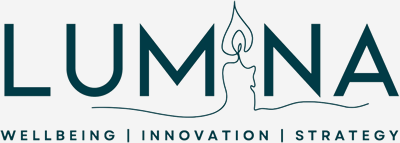When Life Throws You a Curveball……
Life throws curveballs. We all know that. They come in all shapes and sizes — illness, job stress, family change, loneliness, or just the slow build-up of everyday demands that finally tip you over.
When I look back, the things that helped me most weren’t dramatic. They weren’t found in a textbook, a wellness app, or a self-help manual. They were small, ordinary things that quietly put me back together.
Having friends. Real friends.
Walking in the sun.
Having a swim.
My cats (even Billie, who has a warning note on her vet file).
And grocery shopping.
They’re simple, almost trivial things — but together they became a kind of therapy I didn’t plan.
Yes, grocery shopping. There’s something strangely grounding about walking the aisles, picking up food, and thinking about what’s for dinner. It’s ordinary, but it reminds me that I’m still here, still choosing, still part of the rhythm of daily life.
Not all change needs to be clinical or come through medication or professional help. Sometimes the most powerful shifts are the practical ones — the small, simple adjustments that make life a little easier.
Researchers in human flourishing remind us that wellbeing grows out of ordinary practices — habits that build connection, purpose, and stability. Flourishing isn’t just about happiness or success. It’s about feeling whole — physically, mentally, socially, and spiritually. It’s about having the energy, purpose, and relationships that help us live well, even when life isn’t going smoothly.
When I walk in the sun, it’s not just about vitamin D. It’s a small act of connection with the world around me. When I swim, I feel the rhythm of breath and movement — a reminder that my body still works, still belongs to me. When I talk to friends, I’m reminded that life doesn’t have to be faced alone. These moments don’t fix everything, but they stop me from coming apart.
It’s easy to think that wellbeing requires grand solutions — mindfulness courses, therapy programs, or workplace wellness weeks. Those things matter, and they help many people. But often the first steps toward recovery or renewal are surprisingly practical.
Eat something decent.
Go outside.
Talk to someone you trust.
Do one small thing that restores a sense of rhythm or control.
The older I get, the more I realise that wellbeing is built in the ordinary — the daily, repeated acts that quietly tell your body and mind: You’re safe, you’re cared for, you’re still moving forward.
This has changed how I think about workplaces too. Supporting mental health isn’t just about offering a running a wellbeing week. Those initiatives are important, but they often miss the everyday pressures that wear people down.
The truth is, most people don’t need another inspirational poster. They need less noise in their inbox. They need a bit more time between meetings. They need leaders who notice when someone’s running on empty.
Flourishing at work happens when people have space to breathe — when their environment is designed to make life less of a juggle. A humane meeting schedule, clear communication, genuine flexibility, and trust all matter more than slogans about self-care.
When leaders understand that, workplaces shift from being draining to sustaining. People don’t just survive the week; they find small reserves of energy for what really matters — both at work and at home.
I’ve seen this in schools, businesses, and community groups. The most effective wellbeing cultures are rarely the flashiest ones. They’re the ones where someone quietly says, “Go home early,” or “Let’s cancel that meeting and talk next week.” They’re built on the belief that people flourish best when they feel seen and supported as whole human beings.
So if life’s throwing you a curveball, or your workplace feels like one long juggling act, start small.
Go for a walk in the sun.
Have a swim.
Have that mate you a contact.
Pat the cat.
Do something that makes life just a little easier.
You don’t need to fix everything to begin to feel better. Sometimes it’s enough to take one ordinary step toward feeling human again.
Because when life feels a little easier, we have more energy left for what really matters — to love, to work well, and to live with purpose. And remember be the light for others as you do not know when you may need someone to hold the candle for you.
Andrew Murray is appearing across Australia and New Zealand in 2026. Reach out to discuss keynotes, workshops, or wellbeing programs for your school or organisation.
